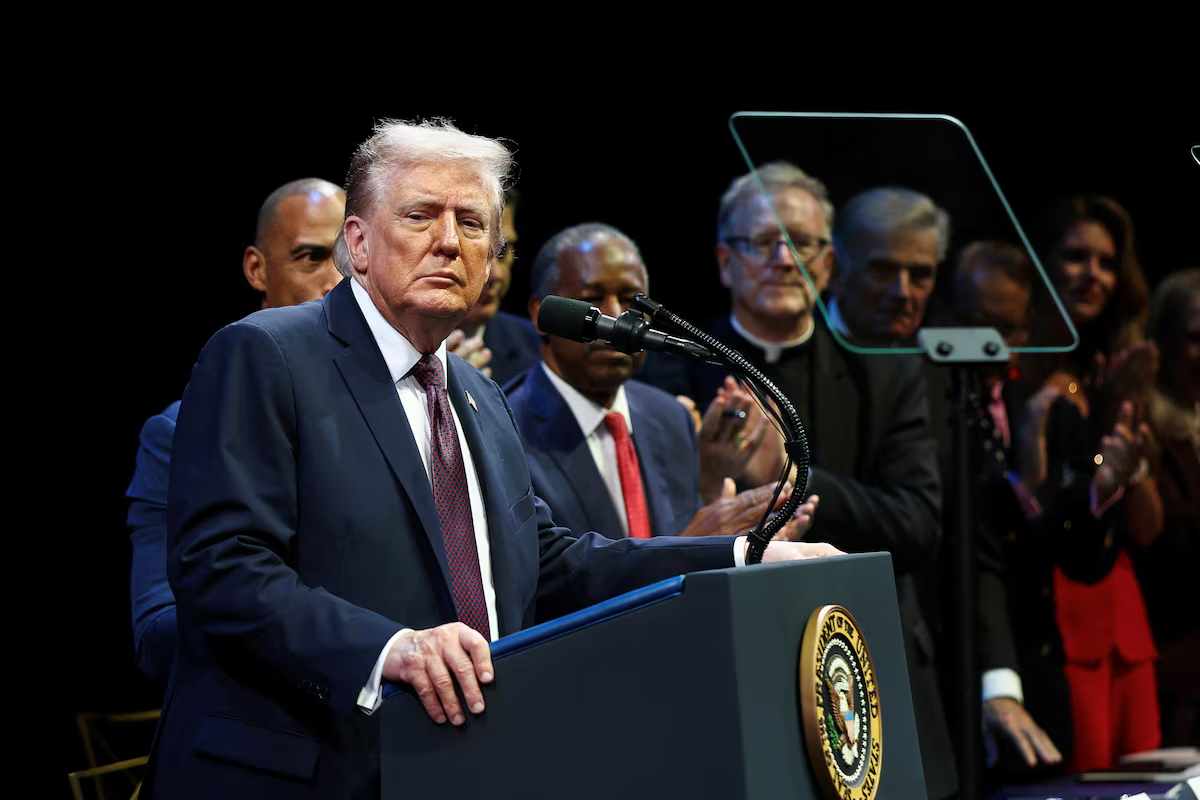In a sudden escalation of tension, U.S. President Donald Trump has pressed Israeli Prime Minister Benjamin Netanyahu to give a formal assurance that Israel will not carry out additional military strikes against Qatar, following a recent attack on Hamas leadership in Doha. The demand has raised stakes in the region and stirred international alarm.
A Lone Strike, Big Consequences
The incident in Qatar has caused significant diplomatic fallout. According to sources familiar with White House discussions, Netanyahu did not inform Trump or senior U.S. advisers until the missiles were already airborne — a move that deeply irked the U.S. administration. The attack was not only damaging to Israel’s international standing but is also seen as having potential repercussions for U.S. interests.
Qatar’s leadership responded sharply. Prime Minister Mohammed bin Abdulrahman al-Thani described the attack as a “betrayal,” saying it had compelled Doha to reexamine its security partnership with Washington. He indicated that leaders across the Gulf are evaluating how they might respond.
Trump’s Reprimand and Regional Fallout
In multiple phone calls with Netanyahu, Trump conveyed his strong dissatisfaction. “It’s unacceptable. I demand that you do not repeat it,” he reportedly said. Trump also reached out to Qatar’s emir and prime minister to convey the seriousness with which the U.S. viewed the strike.
In his message to Netanyahu, Trump questioned what objectives the strike was meant to achieve — especially in the long term — and emphasized the broader diplomatic risks, including damaging relationships in the Gulf region.
Defiance from Netanyahu
Netanyahu, however, has shown little inclination to back down. In a video statement, he reaffirmed Israel’s “right” to act against nations that harbor terrorists. He told Qatar and other nations that if they do not expel or bring to justice militant groups, Israel will do so unilaterally. The Prime Minister drew parallels to how the U.S. pursued al-Qaeda after the attacks of September 11, 2001.
International Reactions
The strike has drawn widespread condemnation. Qatar has explicitly called the attack an act of state terror and accused Israel of violating international law. The United States, while traditionally a close ally of Israel, appears to be distancing itself from this operation — especially given the lack of consultation prior to the strike. European leaders have also expressed concern over the breach of sovereign norms and the risk of further destabilization in the Gulf region.
What Happens Next?
- Qatar’s Strategic Reassessment: Doha may seek new alliances or deepen ties with non-Western partners if it feels its security is no longer guaranteed by traditional allies.
- Escalation Risks: Netanyahu’s statements suggest a willingness to strike again if Hamas leadership remains in Qatar. This could provoke retaliation or draw new adversaries into the conflict.
- U.S. Mediation in Doubt: Trump’s demand for a commitment not to strike again reflects a frustration with Israel’s autonomy in regional operations — but it also leaves open whether the U.S. can enforce or even monitor such a promise.
















Leave a Reply